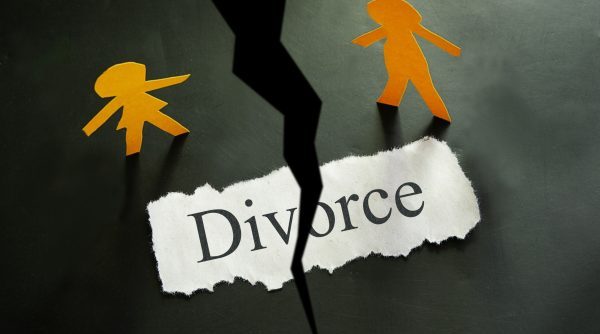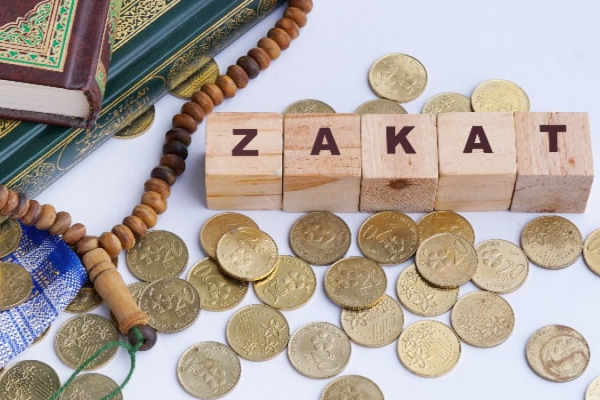Can an ex-spouse inherit?
بسم الله الرحمن الرحیم
Among the three agreed upon causes for eligibility to inheritance is marital relations; each spouse will inherit from the other provided there are no causes to be barred from inheritance. Marital relations however, unlike kinship, is not always permanent; marriages can break down with each one of the spouses go their own way.
One of the pertinent questions in relation to inheritance and divorce is whether ex-spouses can ever inherit following the death of their ex-spouse. To understand this in its entirety, let us briefly consider divorce in Islam and its subsequent consequences.
With certain pronouncements of divorce, a ṭalāq rajʿī occurs which means that the couple can get back together during the waiting period [ʿiddah] without a new nikāḥ. In contrast, with certain pronouncements of divorce, a ṭalāq bāʾin occurs which means that the couple can back together only after a new nikāḥ takes place. This is true even if their reunion is taking place during the waiting period.
Keeping this in mind, the jurists from the four schools of thought are unanimous that if a ṭalāq rajʿī is pronounced, then the surviving ex-spouse, be it the husband or wife, will inherit the deceased if the death occurred during the waiting period.
Similarly, they are unanimous that if a ṭalāq rajʿī was pronounced but death of any of the ex-spouses took place after the waiting period ended, then there will be no inheritance between them.[1]
Likewise, they are unanimous that if a ṭalāq bāʾin was pronounced while the husband was healthy and with no signs of passing away, then none of the ex-spouses will inherit from the other.[2]
Likewise, they are also unanimous that if a husband pronounced a ṭalāq bāʾin during his final illness, but his wife passed away before him while she was still in her waiting period, then he does not inherit from her.[3]
However, there is a difference of opinion in the following scenario: if a ṭalāq bāʾin was pronounced during the final illness of the husband and the husband then passed away during that illness while the divorced wife was still in her waiting period. In such a scenario, the Ḥanafīs are of the view that the surviving ex-wife will still inherit if the waiting period is ongoing. Once the waiting period ends, she no longer inherits.[4]
And Allah knows best
Ibrāhīm ibn Muḥammad
[1] قال السرخسي (المتوفى سنة 483هـ): ولو طلق المريض امرأته تطليقة رجعية، ثم مات بعد انقضاء العدة فلا ميراث لها منه؛ لانعدام السبب عند الموت حقيقة وحكما، وأيهما مات قبل انقضاء العدة ورثه الآخر (المبسوط: 156/6)
[2] قال الكاساني (المتوفى سنة 587هـ): المعتدة لا تخلو إما إن كانت من طلاق رجعي وإما إن كانت من طلاق بائن أو ثلاث والحال لا يخلو إما إن كانت حال الصحة وإما إن كانت حال المرض فإن كانت العدة من طلاق رجعي فمات أحد الزوجين قبل انقضاء العدة ورثه الآخر بلا خلاف سواء كان الطلاق في حال المرض أو في حال الصحة؛ لأن الطلاق الرجعي منه لا يزيل النكاح فكانت الزوجية بعد الطلاق قبل انقضاء العدة قائمة من وجه والنكاح القائم من كل وجه سبب لاستحقاق الإرث من الجانبين كما لو مات أحدهما قبل الطلاق…وإن كانت من طلاق بائن أو ثلاث فإن كان ذلك في حال الصحة فمات أحدهما لم يرثه صاحبه سواء كان الطلاق برضاها أو بغير رضاها، وإن كان في حال المرض فإن كان برضاها لا ترث بالإجماع، وإن كان بغير رضاها فإنها ترث من زوجها عندنا (بدائع الصنائع: 218/3)
[3] قال السرخسي (المتوفى سنة 483هـ): وإن كانت المرأة هي التي ماتت في جميع هذه الوجوه لم يرثها الزوج؛ لأنه رفع السبب باختياره، ولم يكن له حق في مالها في حال قيام الزوجية؛ ليبقى ذلك ببقاء العدة (المبسوط: 157/6)
[4] قال السرخسي (المتوفى سنة 483هـ): وإذا طلق المريض امرأته ثلاثا، أو واحدة بائنة، ثم مات، وهي في العدة، فلا ميراث لها منه في القياس، وهو أحد أقاويل الشافعي – رضي الله عنه -، وفي الاستحسان ترث منه، وهو قولنا (المبسوط: 154/6)
وقال الزحيلي (المتوفى: 1436): وترث المرأة من زوجها إذا كانت في العدة مطلقة طلاقاً رجعياً؛ لأن الزوجية في الطلاق الرجعي قائمة ما دامت في العدة، وهذا متفق عليه فقهاً وقانوناً. أما المطلقة طلاقاً بائناً فلا ترث ولو كانت في العدة إذا طلقها زوجها في حال صحته، لعدم اتهامه بالفرار من إرثها. فإن طلقها في مرض موته فراراً من إرثها منه، وهو ما يسمى طلاق الفرار، فترث منه عند الحنفية إذا مات ما لم تنقض عدتها معاملة له بنقيض مقصوده. وترث منه عند المالكية ولو انقضت عدتها، وتزوجت غيره فعلاً لإطلاق الآثار فيها، وترث منه عند الحنابلة ولو انقضت عدتها، ما لم تتزوج غيره، لقول أبي سلمة رضي الله عنه: إن عبد الرحمن بن عوف طلق امرأته البتة، وهو مريض، فورَّثها عثمان بن عفان بعد انقضاء عدتها.
والخلاصة: إن الجمهورـ غير الشافعية يورثون هذه المرأة لقصد الزوج السيء.
ولا ميراث لهذه الزوجة المطلقة طلاقاً بائناً عند الشافعية، وإن كانت العدة باقية لمعنى آخر؛ لأن البينونة قطعت الزوجية التي هي سبب الإرث (الفقه الإسلامي وأدلته: 378/10)





